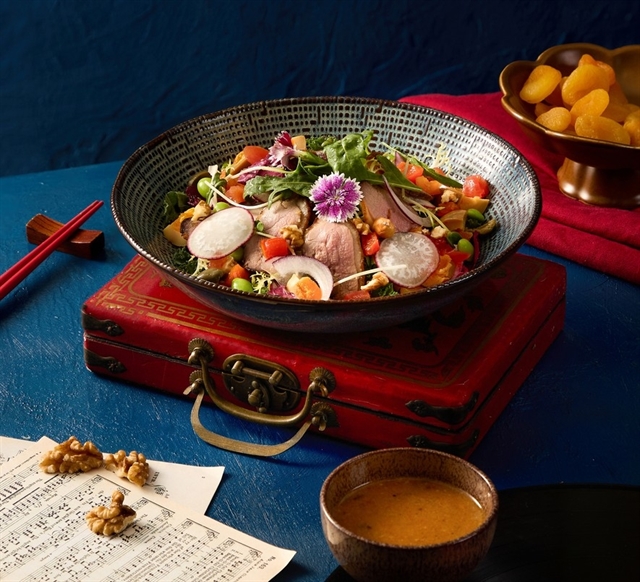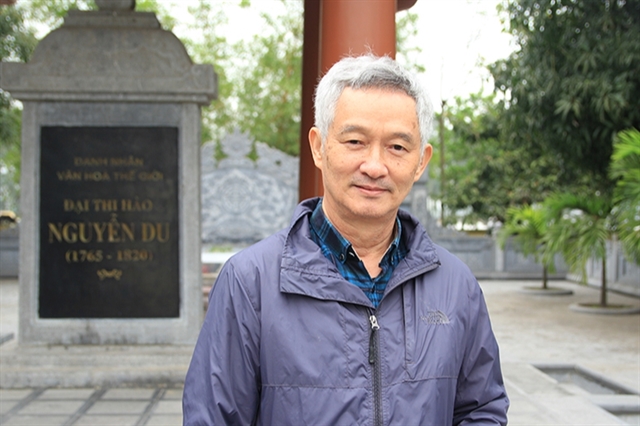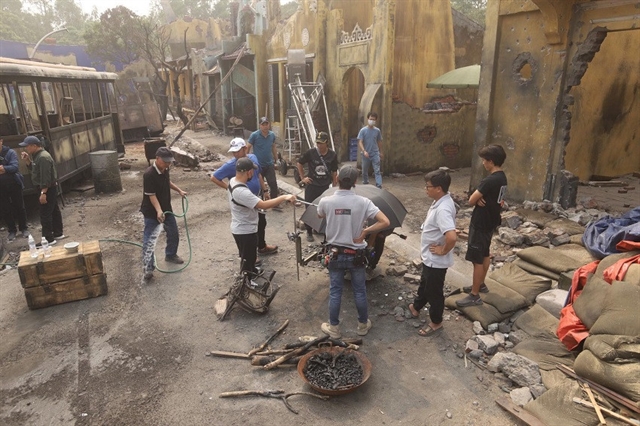 Life & Style
Life & Style

 |
| Director Phi Tiến Sơn. |
The movie Đào, Phở và Piano (Peach Blossom, Phở and Piano) by director Phi Tiến Sơn is about a young couple during the 60-day-and-night campaign in late 1946, when the Hà Nội residents were responding to President Hồ Chí Minh's appeal for a national resistance war against the French reconquest .
The Sài Gòn Giải Phóng (Liberated Sài Gòn) newspaper reporter Mai An interviews director Sơn about the movie.
The movie Hà Nội's Mùa Đông Năm 1946 (Hà Nội's Winter in 1946, released in 1997) is also about the popular historical event, Hà Nội's 60-day-and-night campaign. What is different between the old movie and the new one Đào, Phở và Piano?
The two movies are about the 60-day-and-night campaign in Hà Nội to fight against the French reconquest. The movies have the same movie setting.
Đào, Phở và Piano tells about a young couple who overcame difficulties and dangers to find each other again on the last day of those 60 days and nights on February 17, 1947. At that time, Vietnamese troops withdrew to the Việt Bắc resistance zone, beginning the long-running war resistance.
Having met in the middle of a street battle, the lovers only had a few hours left to get married, in a situation between life and death. The plot focuses on their last moments - the moments of love for life, beauty, and freedom.
Could you elaborate more about the name of your movie?
I was born and grew up in Hà Nội. I nurtured the desire to make a movie focusing on the good things and characteristics of Hà Nội Capital.
The movie features the fiercest days of the campaign to defend the capital city in late 1946, just before Tết (Lunar New Year).
In Hà Nội, when Tết comes, there must be peach blossoms. In the past, peach blossoms were rare and precious; they were not as abundant as today.
Phở is favoured by Hanoians. And in the quiet atmosphere of the old Hà Nội, the piano playing in a certain house could often be heard.
All these things inspire me to make Đào, Phở và Piano. The movie will help the audiences learn about the lifestyle of old Hanoians.
The movie setting is always the biggest challenge of making a historical movie. What difficulty did you face in creating the movie set?
There has never been a Vietnamese movie to be made with a setting like this one. It takes the crew a long time to create the movie set.
It is difficult for the movie makers to find the place for the setting because there are bomb blast scenes. It must keep the place safe for the nearby residents and quiet for synchronised sound.
We choose Đại Lải in the province of Vĩnh Phúc, north of Hà Nội, for the movie setting thanks to support from the Ministry of National Defence.
After five months, the setting was made by a team of veterans who have taken part in historical and war movies. The system of defence works is the main setting of the movie. The setting allows the cameraman to do long shoots.
 |
| The movie setting is the system of defence works built from Hà Nội's old houses. VNA Photos |
How do you portray soldiers and city dwellers participating in the campaign to protect Hà Nội capital?
The movie is expected to convey to viewers the Hà Nội of nearly 80 years ago, along with the whole country, bravely fighting against the French invaders in response to President Hồ Chí Minh’s call for a national war of resistance.
The movie has nameless characters, but they are not supporting roles. Each is a small piece making a picture of Hà Nội in 1946-47.
In the movie, the indomitable dignity of the Vietnamese people permeates all the inhabitants of Hà Nội. At the same time, it shows an elegant Hà Nội determined to die for the motherland with its citizens, regardless of their age, profession, social class or religion.
It’s a sincere militiaman who yearns for a peaceful life with his young wife yet fearlessly stands alone against a whole invading army to prove that the people of the capital are not afraid of the enemy and to avenge his murdered compatriots.
A romantic and pious Old-Quarter young lady who dares to join the fight. They love each other so much that they devote themselves to each other, even though they know that death is only a few hours away.
An old painter who spent his life searching for the essence of sublime beauty and found it in the very people around him. He fell while trying to protect the painting he had worked on all night.
There’s also a smart, innocent, shoeshine boy and a priest who doesn’t want to get involved in the war but still stands tall in front of the enemy's guns.
Or a phở-vending couple who passionately spread the traditional dish and, despite the fear of death, still try to carry the last basket of phở to the battleground.
And a Western-educated court judge, full of doubts about the resistance capability of the Vietnamese troops but still clearly distinguishing between good and evil. - VNS